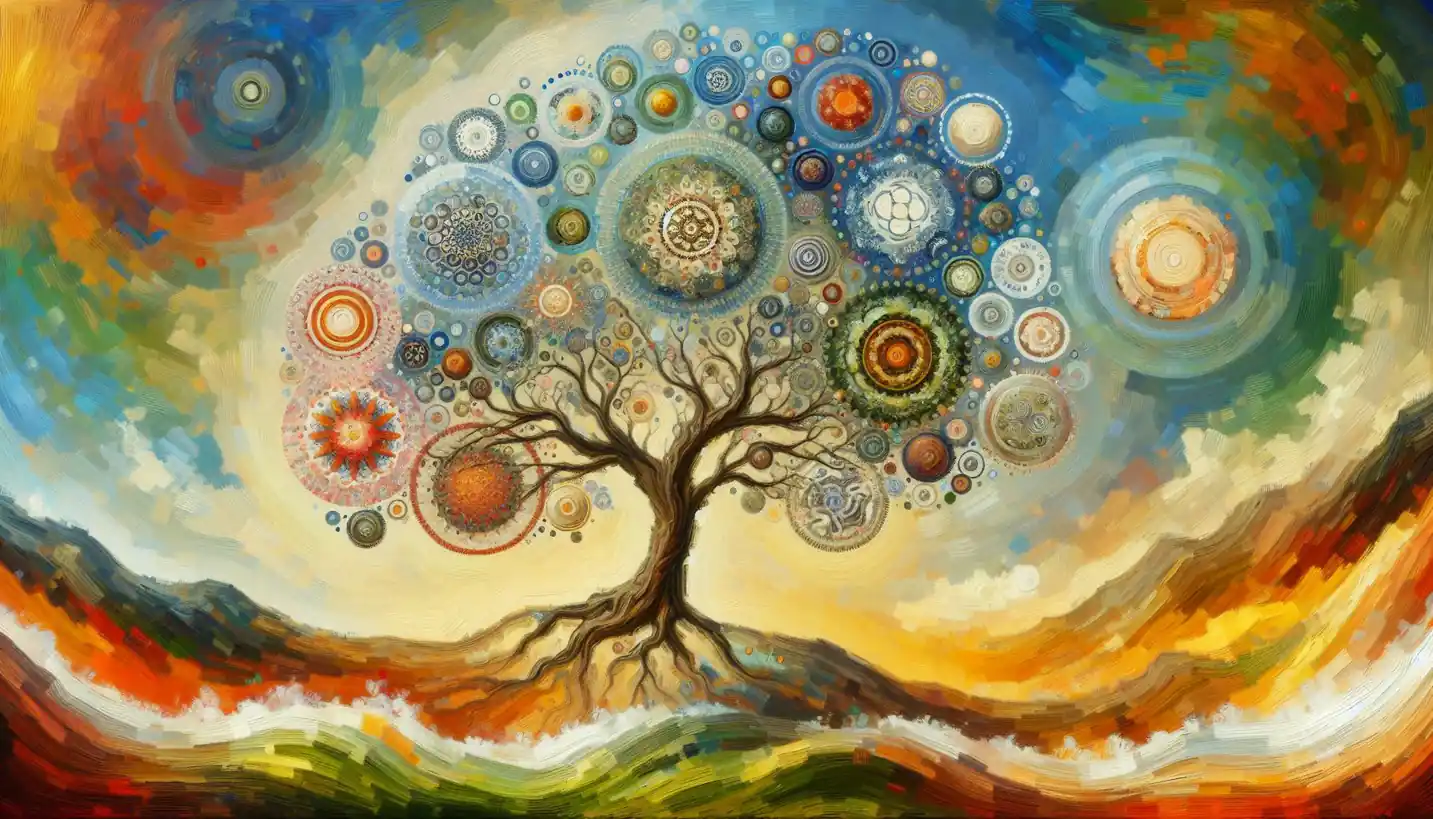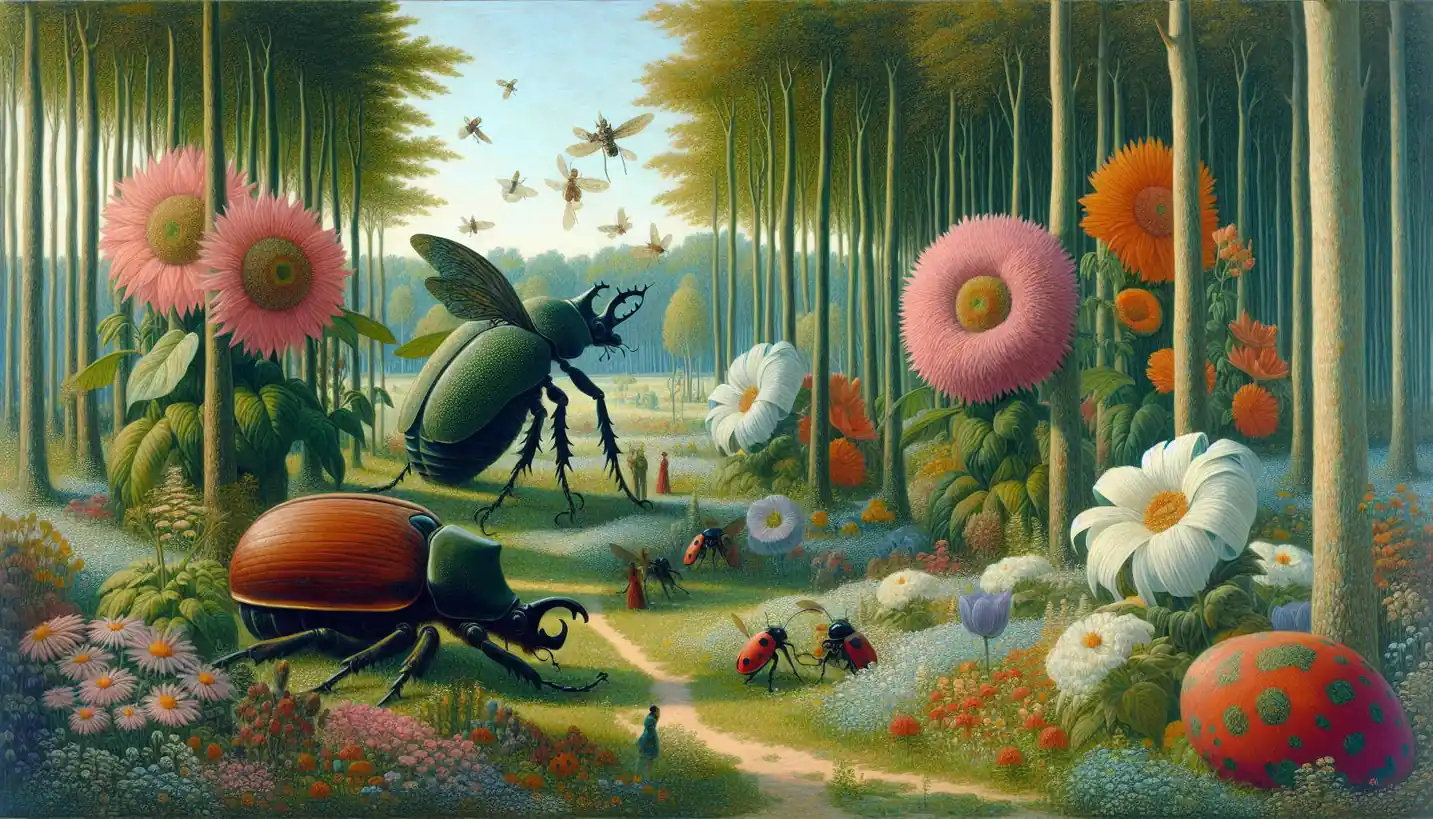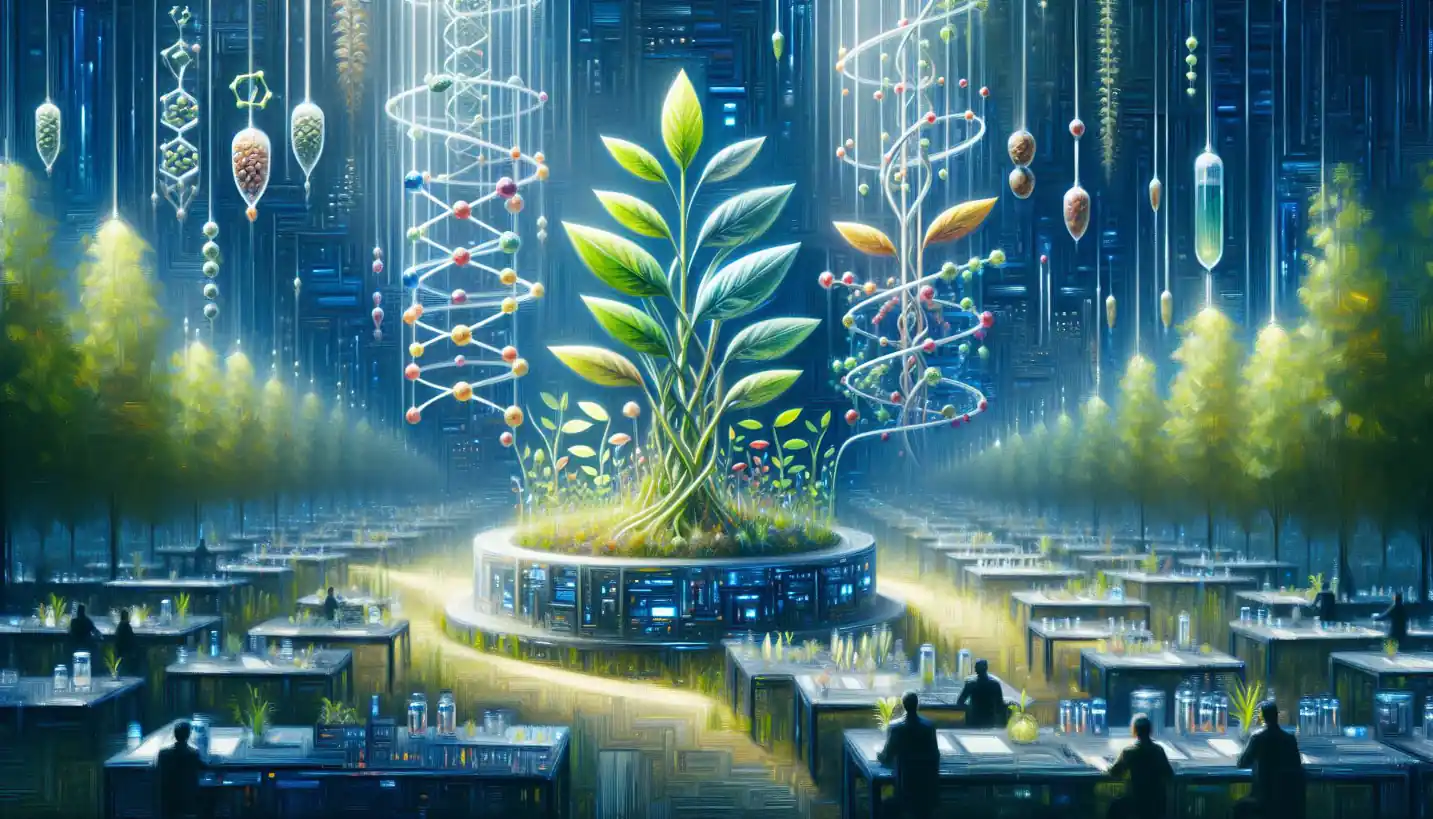· Biology · 4 min read
Mutation: The Power and Mystery of Genetic Change
Mutations are the engines of change in genetics, offering insight into evolution and adaptation.

Delve into the world of genetics, and you’ll soon encounter mutations. These tiny changes in our DNA can be as life-altering as they are fascinating.
What is Mutation?
Think of a mutation as a typo in the massive instruction manual that tells our cells what to do. This manual is our DNA, and it works like a cookbook filled with recipes for making proteins, which are essential for various functions in our body. Sometimes, an error sneaks into one of these recipes—a mutation.
How Do Mutations Happen?
Imagine typing up an email. Every time you hit a key, there’s a chance for a slip of the finger, a small mistake. Similarly, as cells divide and replicate, there’s always a risk of error. Mutations can happen randomly, or they might be triggered by external factors like radiation or harmful chemicals.
There are different kinds of mutations. Some are like missing a letter in a word, while others might be like swapping one letter for another. Some changes might go unnoticed, but others can completely alter the meaning—just like a word in a sentence.
The Role of Natural Mutations
It’s easy to think of mutations only as harmful, like typos that mess up the story. But in many cases, mutations are a driving force behind the diversity of life. They are crucial for evolution. Picture a group of animals living in a place that suddenly becomes colder. A mutation might allow some of them to grow thicker fur. These animals will survive and reproduce, passing on their thicker-fur genes to the next generation.
Examples in Real Life
Mutations aren’t just in textbooks—they have real impacts. Consider sickle cell anemia, a condition caused by a mutation affecting hemoglobin, the protein in red blood cells. This alteration makes the cells rigid and sickle-shaped, leading to health complications. However, this same mutation provides a surprising advantage against malaria. In regions where malaria is common, carrying one copy of the sickle cell gene offers protection against the disease.
When Mutations Lead to Problems
While some mutations can be beneficial, others can lead to diseases or disorders. They’re like that typo in a crucial part of a computer code, causing the program to crash. For instance, certain mutations might increase the risk of developing cancers by disrupting normal cell growth.
However, not all mutations in disease-causing genes lead to problems. It’s like finding a balanced recipe variation—some might actually function well enough to keep things running smoothly.
Detecting and Understanding Mutations
With advancements in technology, scientists now have powerful tools to study and detect mutations. Think of high-tech magnifying glasses or advanced spellcheckers. These tools allow researchers to read through DNA sequences, identify mutations, and understand how they might affect an organism.
Thanks to these tools, personalized medicine is becoming a reality. Doctors can examine a person’s genetic makeup and tailor treatments to their specific genetic profile, much like customizing a playlist to individual taste.
The Future of Mutation Research
The study of mutations is a rapidly evolving field. Researchers are exploring ways to fix harmful mutations with techniques like CRISPR, a technology that acts like molecular scissors, precisely snipping and repairing sections of DNA. This could revolutionize how we treat genetic disorders, paving the way for cures we can only dream of today.
Imagine a world where genetic diseases are preventable or where we can enhance our resilience to environmental changes. The possibilities are as vast as the universe we inhabit, encouraging us to explore further.
Why It Matters
Understanding mutations isn’t just for experts in white lab coats. It’s crucial for everyone, as it shapes our understanding of health, evolution, and the very nature of life. It challenges us to think about the delicate balance of change and stability in the natural world.
As we decode more of these genetic mysteries, we move closer to understanding what makes each of us unique. Whether it’s unlocking the secrets of long life, understanding cancer better, or learning how species adapt to climate change, mutations hold the key to many of these puzzles.
Conclusion
In the grand story of life, mutations are both the errors and the chapters that bring unexpected twists to the tale. They remind us of the delicate dance of chance and adaptability that life performs.
Embracing the study of mutations opens up a world of discovery. These genetic changes are not just scientific curiosities; they are fundamental to our existence and future. Let’s keep our minds open to the possibilities they present, sparking curiosity and innovation as we venture into the DNA-driven frontier.

